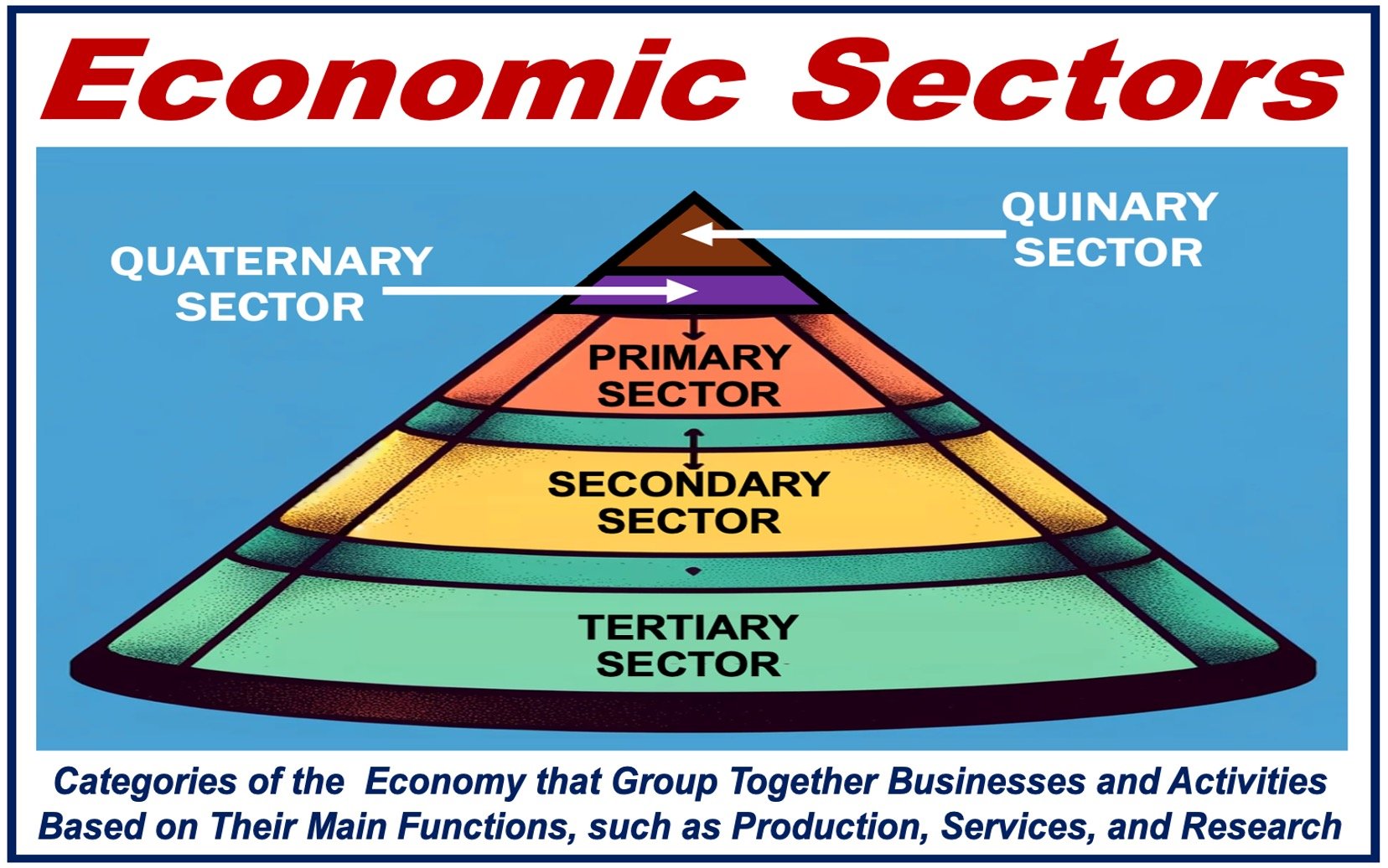An Economic Sector is a major segment of the economy that groups together businesses, organizations, and activities that share common characteristics. These sectors are the building blocks of the economy. They provide a framework for analyzing and understanding economic activity.
By dividing the economy into different sectors, economists can better analyze economic activity and gauge the components of GDP (gross domestic product).
The main economic sectors
The structure of a country’s economy is commonly categorized into three main sectors, though it can extend to four or five. In this article, let’s focus on the foundational three: primary, secondary, and tertiary, and then look at the fourth and fifth.
Each sector plays a crucial role in the overall health and development of the economy:
The primary sector
This sector includes agriculture, mining, fishing, and forestry The primary sector is the foundation of the economy. It supplies raw materials to other sectors and industries.
The secondary sector
This is where construction and manufacturing take place. In this sector, raw materials are transformed into finished or semi-finished products. It includes various industries, such as automobile manufacturing, textiles, electronics, machinery production, chemical manufacturing, and construction.
This sector is vital for the economy’s industrial base. It is where a significant proportion of people work.

The tertiary sector
The tertiary sector is also called the service sector. It provides services rather than goods. This sector includes retail, education, healthcare, financial services, information technology, hospitality, professional services, and transportation.
As economies evolve, this sector becomes more important. In most of today’s advanced economies (rich countries), this is the largest economic sector.
The Quaternary Sector
In some classifications, this is the fourth sector and includes information services, research and development (R&D), and technology. Information services, in this context, refers to the collection, processing, management, and distribution of information through activities such as computing, telecommunications, and data analysis.
The Quinary Sector
Some economists refer to this as the fifth section. It includes high-level decision-making roles in government, education, non-profits, and healthcare.
Why understanding economic sectors matters
Understanding economic sectors helps people analyze economic performance, identify growth opportunities, and make informed investment decisions.
Without insights into the performance of each sector, our leaders would struggle to make informed decisions for the country. To bridge this gap, even policymakers without a background in economics rely on teams of experts for guidance.
For individuals and businesses, understanding sectors can help us in our career decisions, business planning, strategy development, and even personal finance. For example, if I am thinking of taking out a large personal loan, I may wait a year or two if key economic indicators suggest that there will soon be a major increase in interest rates.
Another possible meaning
In everyday discussions, the term “economic sector” may also refer to specific industries such as pharmaceuticals, banking and finance, oil and gas, entertainment, tourism, automotive, manufacturing, and media.
Each sector, in this context, defined by its unique services or products, plays a distinct role in the economy.
The tourism sector, for example, includes everything from hotels to travel agencies, while manufacturing spans from handicrafts to industrial goods.
In this sentence: “These industries have the most promising future at the moment – technology & information services, robotics, and renewable energy,” the terms “industries” and “business sectors” have the same meaning.
